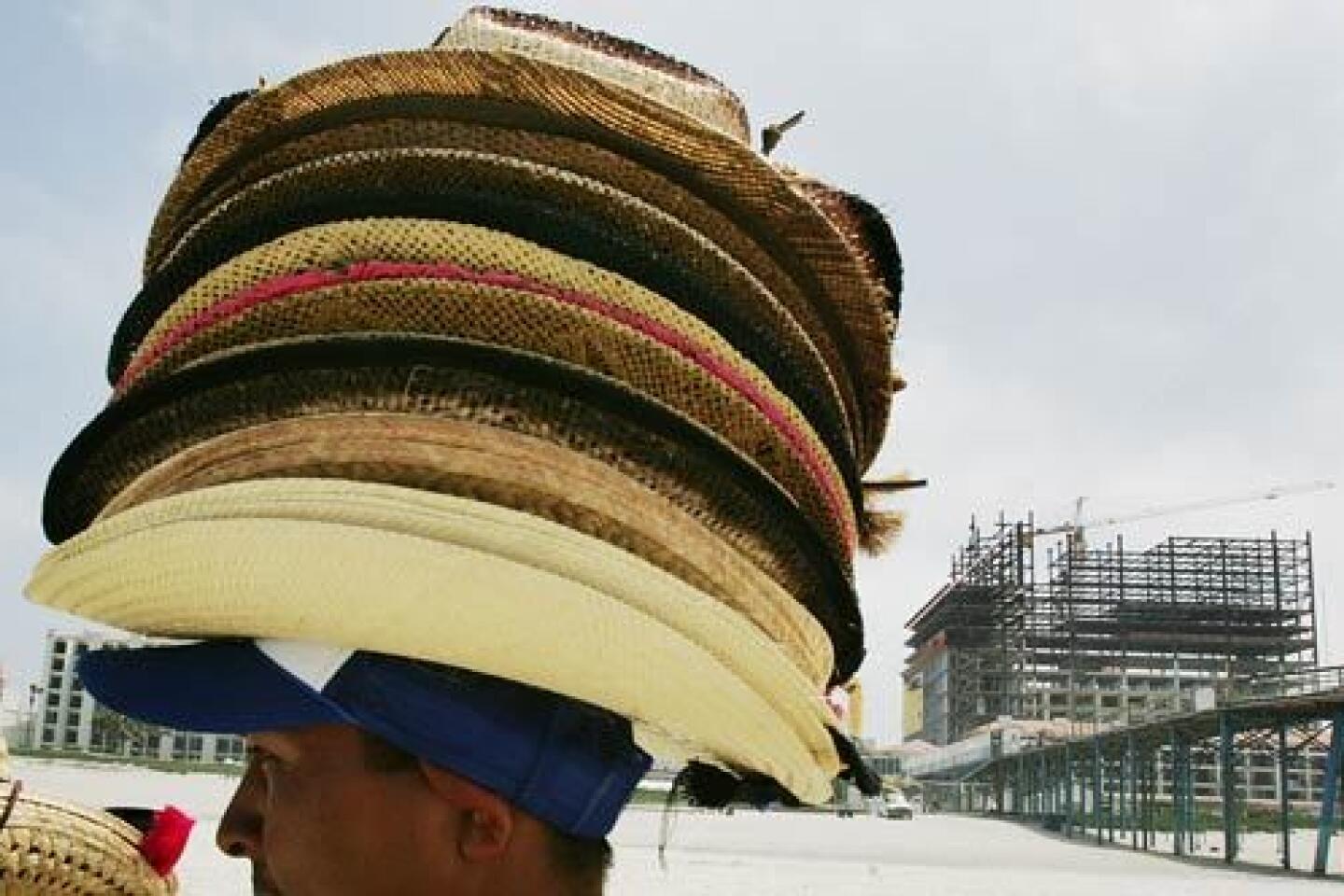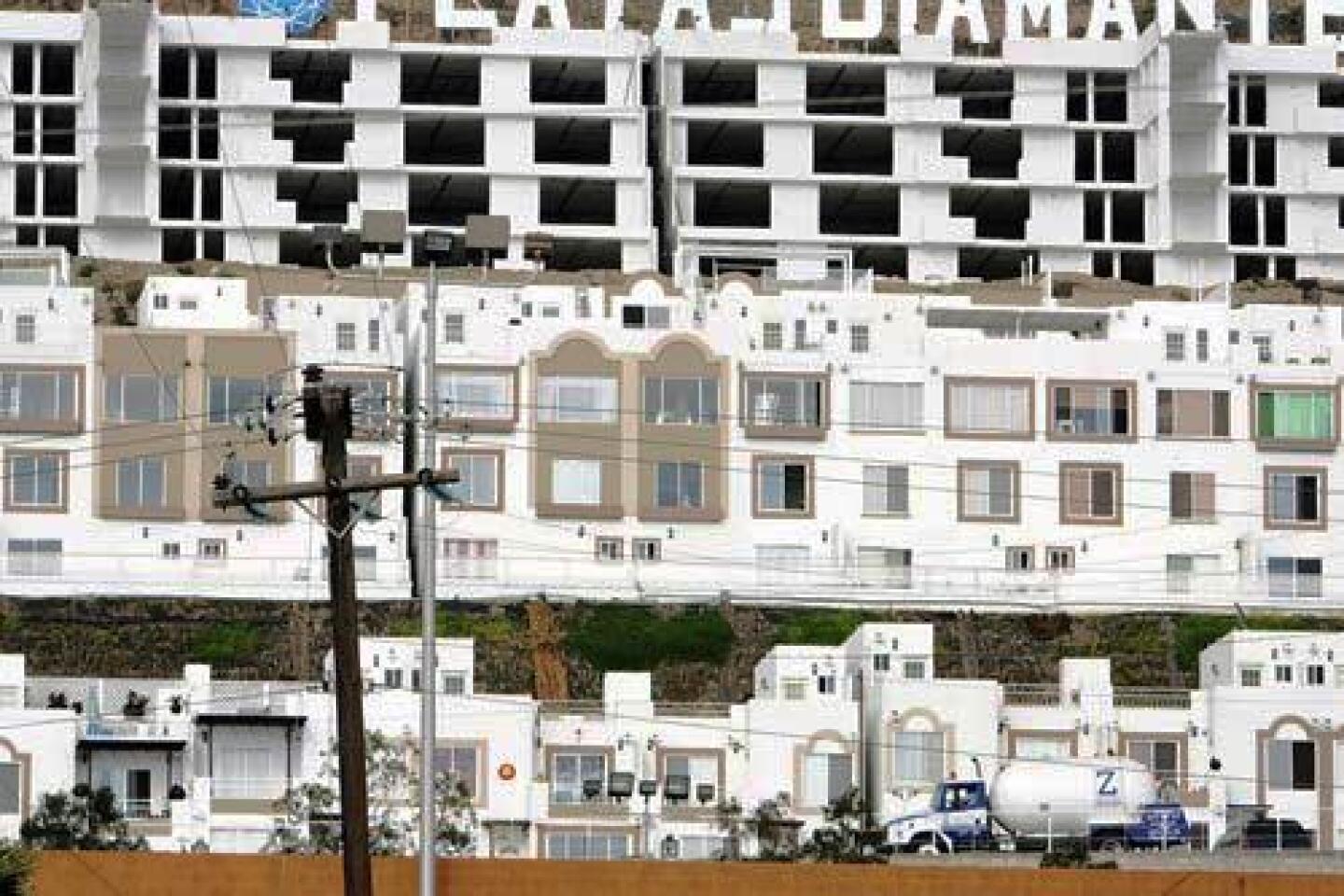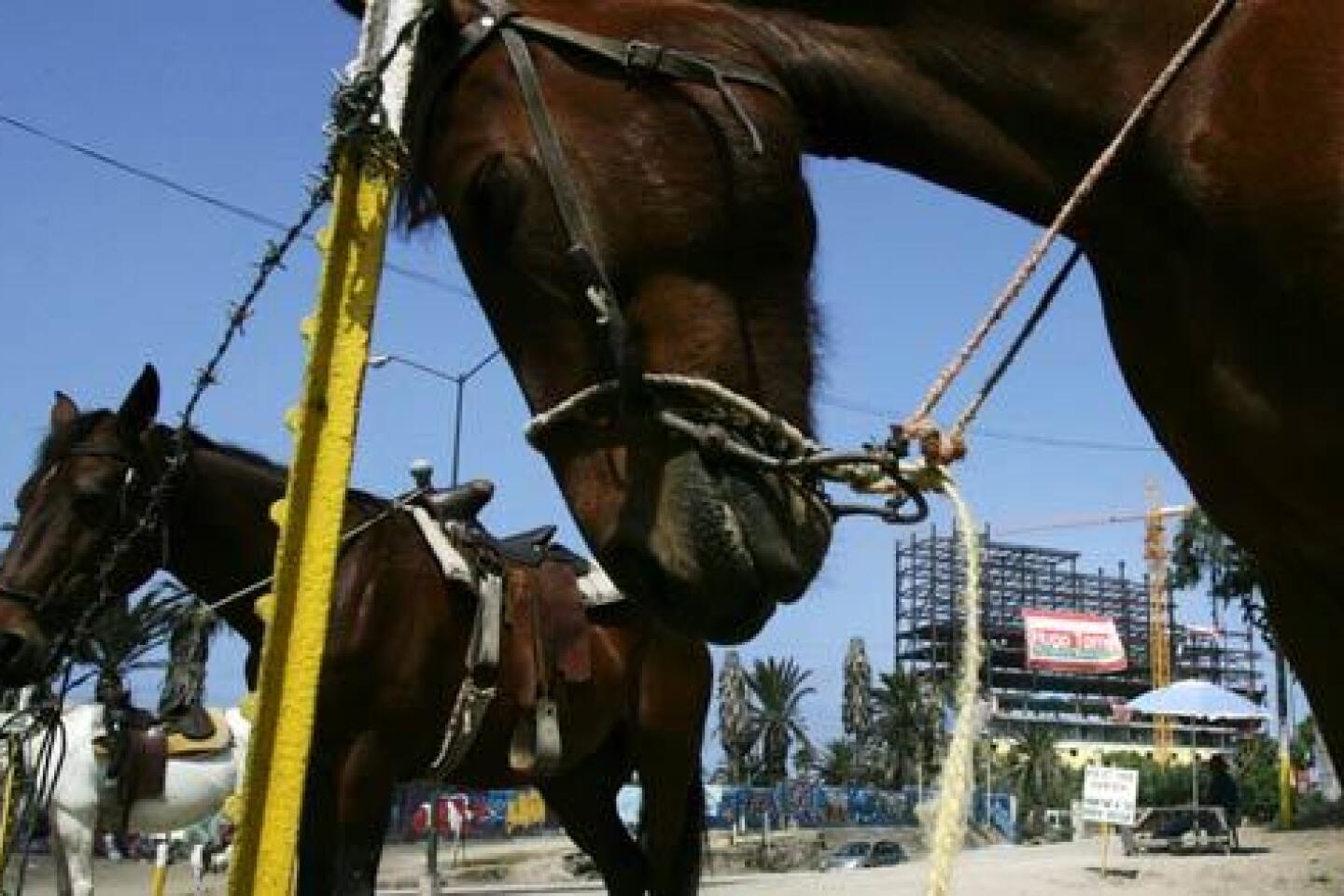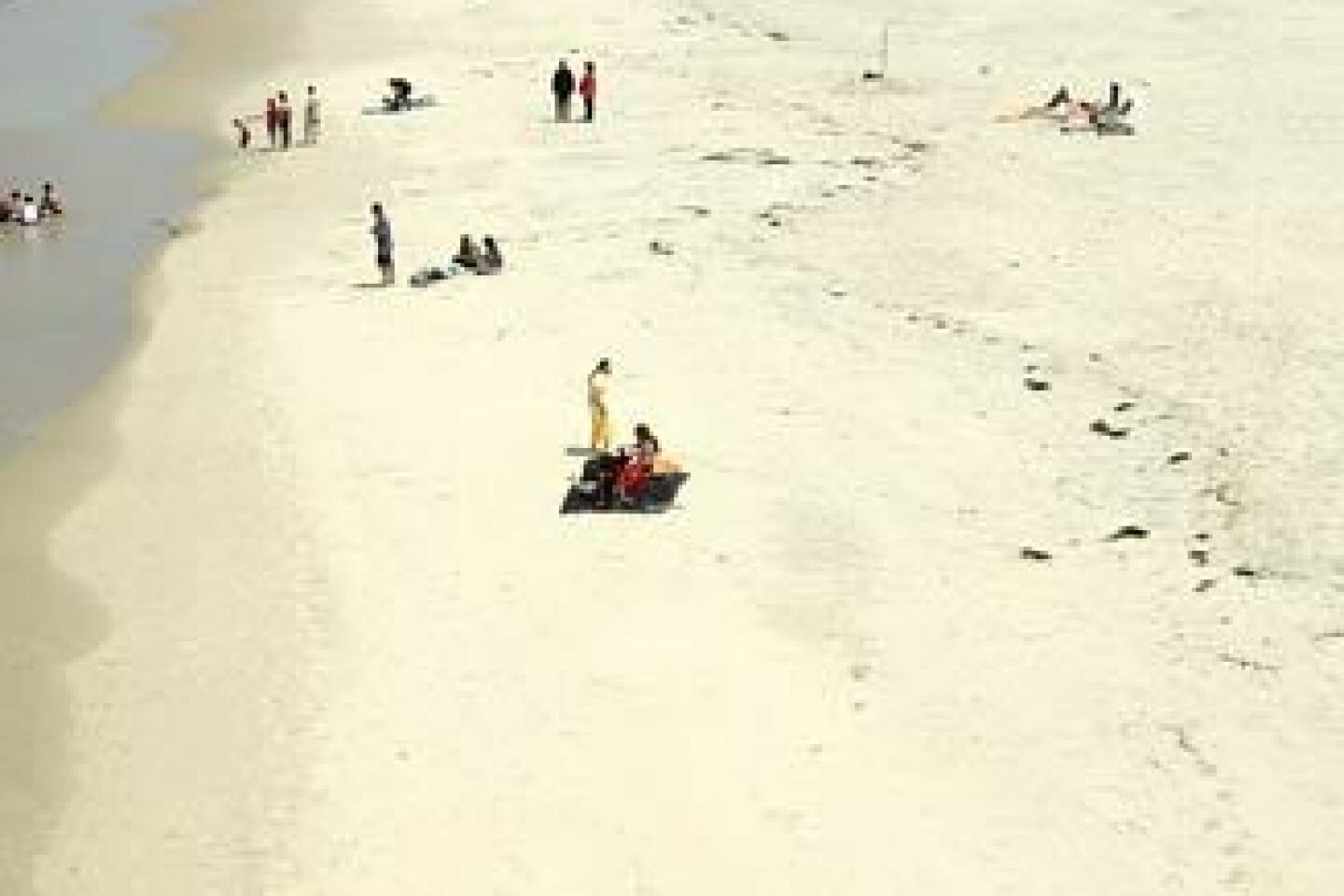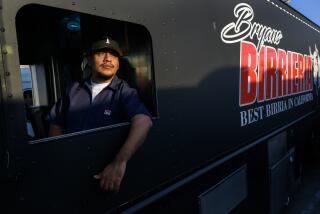Baja tourists face uptick in assaults, robberies
The Hall family was driving back to California on the foggy coastal highway when a car flashing red lights and blaring its siren pulled up behind them. A police shakedown, thought Debra Hall as her husband, Christopher, veered to the side of the dark road.
Having made many trips to Baja California, they knew a payoff was just part of the price of a visit. This time, returning from the Baja 1000 off-road race, they figured $40 would suffice and they’d be back at their El Cajon home within an hour.
Instead, several heavily armed, masked men surrounded their truck and trailer and pointed guns at their heads, the start of an hours-long assault that ended with Debra, Christopher and their two children running for their lives through the hills.
The Hall family’s ordeal last week was the latest in a string of assaults against Americans that has shocked longtime visitors and severely undercut a recent anti-crime initiative aimed at polishing Baja California’s image as a tourist-friendly destination. In a region where most visitors expect the occasional extortion attempt by police, the recent crime wave has seen attacks become more aggressive, often carried out by heavily armed men operating with paramilitary-style precision.
Surfers have been assaulted at gunpoint on beaches and at campgrounds. One woman was sexually assaulted. Expensive trucks, trailers and boats have been carjacked.
At least seven assaults in the past few months have been reported in the media or on websites of Baja surfing and fishing groups. The State Department, which has a consulate in Tijuana where citizens can report crimes, said a long-standing travel alert remains in effect for border regions.
It’s not clear whether the incidents are isolated or represent a trend, said Michele Bond, the department’s deputy assistant secretary for Overseas Citizens Services.
But the crime wave is enough to frighten some longtime visitors, including surf club owners who have canceled operations and some prominent off-road racers who may not compete in future Baja events.
Most of the assaults have occurred at night in the coastal area between Tijuana and San Quintin, a 190-mile stretch dotted with surf beaches, campgrounds, resorts and golf courses.
Surf school owner Pat Weber, of Encinitas, and his girlfriend, Lori Hoffman, were assaulted in October in their recreational vehicle within sight of 30 other campsites on a beach south of Ensenada.
Two masked assailants shot up the vehicle when Weber initially refused to open the door. For the next 45 minutes, the men terrorized the couple, who had gone to Mexico after evacuating their home during the wildfires.
Hoffman said she was sexually assaulted in front of her boyfriend. Then the men made off with $8,000 worth of laptops, jewelry, tools and other items. One of the men disappeared into the night with Weber’s acoustic guitar slung over his shoulder.
“These guys were not novices,” said Hoffman, who noted the attackers’ creased pants, combat boots and sharpshooting skills. The incident was reported to Ensenada police.
Many experts say the timing of the crime wave is curious, coming just ahead of a change in administrations in Tijuana. Critics say former Mayor Jorge Hank Rhon bloated the police payroll with unqualified and corrupt cops.
With rumors flying that the new mayor, Jorge Ramos, whose term begins today, will fire hundreds of police, some rogue cops may be going on a last-minute crime spree, say some observers.
Ramos said one of his first acts as mayor will be to create a special tourist police force -- with different uniforms and cars than municipal police -- that will patrol the coastal highway, in effect, policing the police.
“Whatever it takes, it’ll be done,” said Oscar Escobedo Carignan, Baja’s new secretary of tourism. Escobedo said the state remains a safe travel destination. “I don’t want to downplay what happened. We take it seriously. And we’re making every effort to control it.”
But promises of a crackdown won’t convince the Halls to return to Mexico.
Christopher and Debra, along with their 16-year-old son and 21-year-old daughter, were returning home from Los Cabos about 1 a.m. after participating in the Baja 1000. The family had driven the length of the peninsula many times, so when the siren blared behind them as they entered Tijuana, they thought nothing of it.
“We weren’t concerned at all. . . . You kind of expect it. It’s part of the culture,” Debra said.
Within seconds, about 10 men spilled out of two cars, she said. Five jumped in their 2007 Ford F-250 and pointed guns at their heads. Themendrove the car into the hills, ordering the family to keep their heads down.
The men stopped in an isolated area and started stealing everything they could: watches, bracelets, $1,100 in cash, Debra’s wedding ring. Other men tore out the toolbox in the truck bed and rummaged through the 27-foot trailer.
One man, speaking perfect English, told them to kneel. Their son was singled out for rough treatment, Debra said. “They shoved his face in the dirt. I thought he was going to get executed right there.”
Debra crawled over and covered her son with her body. “He was crying, and I was crying. I told him I loved him. He told me he loved me,” she said. The men huddled the family together and threw two sleeping bags at them. Then they sped off with the truck and trailer. Shivering from cold and fright, the Halls made their way down the dark, barren hills above the beach.
When they walked toward a light at a construction site, a man -- possibly a security guard -- fired two shots, Debra said. They eventually made it into a neighborhood and rang doorbells until a woman answered and phoned the police.
The police, whom Debra said were attentive and “very nice,” drove them to the border and hugged them. The family walked up to the border crossing at San Ysidro with only their flip-flops and the clothes on their backs. A customs inspector let them in the country without their identification, she said.
Debra, like many other recent victims, said the experience won’t diminish her love of the country and its people. She said the family had enjoyed decades of visiting Baja California, where restaurant owners knew their names, town mayors treated them to barbecues and bartenders knew how to make their favorite margaritas.
But the family’s south-of-the-border excursions are over.
“We’ve made many friends,” Debra said. “I’m going to miss those people.”
More to Read
Start your day right
Sign up for Essential California for news, features and recommendations from the L.A. Times and beyond in your inbox six days a week.
You may occasionally receive promotional content from the Los Angeles Times.

